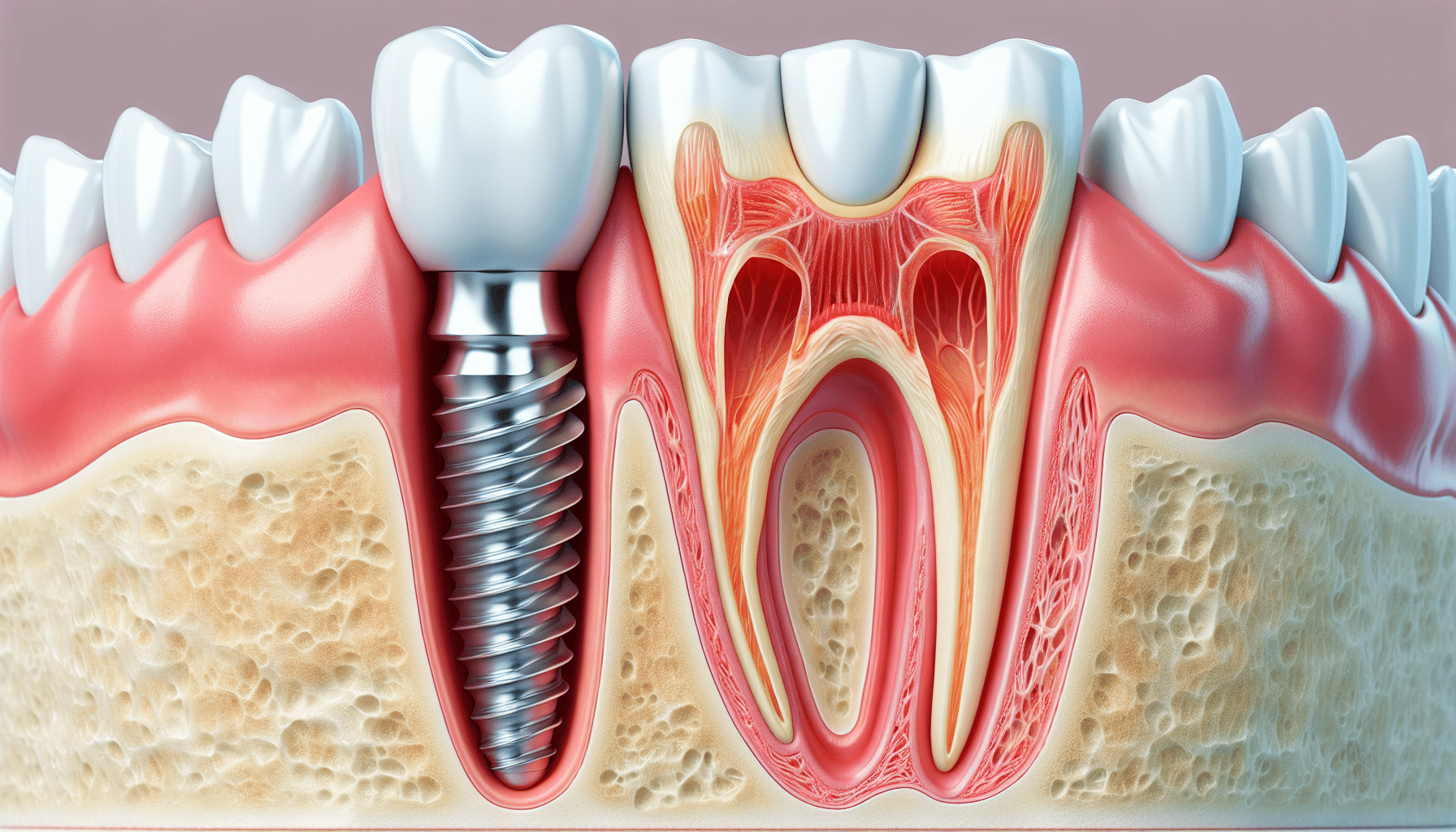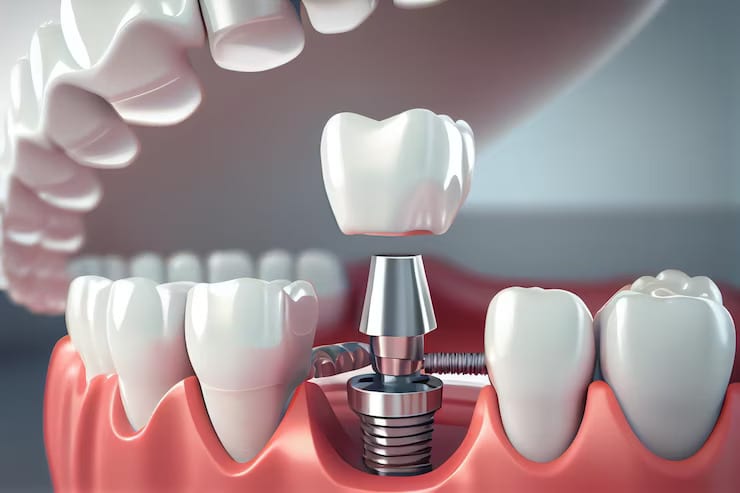Premier Dental Centerburg OH Dental Implants: Options, Costs, and Care
Dental implants have emerged as a preferred alternative for individuals in search of a long-term resolution to tooth loss. One essential aspect of understanding dental implants involves their effect on adjacent teeth. This is especially necessary for making certain the health and longevity of the entire dental structure.
When a dental implant is positioned, it mimics the perform of a natural tooth root. By doing so, it helps keep the integrity of the encompassing bone structure. Natural teeth rely on a balanced, interconnected system for assist, and dental implants can contribute positively to that dynamic. The stability offered by the implant allows for higher distribution of chew forces, which can prevent undue stress on adjacent teeth.
Orthodontics Pataskala OH Are Dental Implants Permanent? What You Should Know
In circumstances where a tooth is missing, the neighboring teeth might shift into the vacant area. This shifting can result in misalignment and various other problems. By putting a dental implant, the chance of this shifting is reduced, as the implant acts as a placeholder that preserves the natural alignment of surrounding teeth. This preventive effect is crucial for long-term oral health and performance.
Another necessary consideration is bone loss. When a tooth is lost, the jawbone in the area can begin to deteriorate because of an absence of stimulation. Dental implants help prevent this bone loss by providing the required stimulation to the jawbone, much like a natural tooth root would. This preservation of bone not solely helps the implant itself but additionally contributes to the stability of adjacent teeth.
The type of material used in dental implants, typically titanium, has a unique property of osseointegration, meaning it fuses with the bone over time. This integration provides a sturdy foundation for the artificial tooth while ensuring that the implant doesn’t negatively have an effect on surrounding buildings. As the implant integrates, it creates an setting that contributes positively to the health of the adjacent teeth.

Regular dental check-ups play an essential position in monitoring the impact of dental implants on adjacent teeth. Professional assessments can help identify any points that may come up, ensuring prompt treatment and sustaining the health of the whole dental arch. These evaluations might embrace X-rays to check for bone density and the overall condition of the implant and surrounding teeth.
Mono Implants Sunbury OH Understanding Dental Implants: A Comprehensive Guide
Oral hygiene practices are very important for individuals with dental implants. Proper brushing and flossing habits not only contribute to the longevity of the implant but additionally ensure that adjacent teeth stay wholesome. Food particles and plaque that accumulate around the implant can cause problems, including peri-implantitis, an inflammatory condition that can have an effect on surrounding teeth and tissues.
The positioning of dental implants can influence the health of adjacent teeth. If an implant is placed at an angle or not correctly aligned, it may lead to increased strain on neighboring teeth. This misalignment may trigger wear and tear on adjacent enamel, potentially leading to cavities or different dental points. Therefore, the ability and experience of the dentist performing the implant process are paramount in achieving a successful consequence.
In some instances, additional procedures may be essential to arrange the surrounding space for an implant. Bone grafting or sinus lifts might help create a greater environment for the implant. While these procedures are geared toward enhancing the location for the implant, they also serve to protect the health of adjacent teeth by making a extra stable basis.
Dental Care Condit OH Permanent Dental Implants

As dental know-how evolves, developments in implant techniques result in higher outcomes. Improved imaging methods and computer-aided design enable for more precise placements that reduce risk to adjacent teeth. With these developments, the probability of problems that might arise from improperly placed implants diminishes considerably.
Post-operative care also plays a crucial position in making certain that adjacent teeth stay unaffected. Patients should adhere to the dentist's instructions relating to diet, oral hygiene, and follow-up visits. Neglecting these guidelines could lead to complications that impact not only the implant but in addition the neighboring teeth.
Dental Clinic Galena OH Dental Implant Surgery
In conclusion, dental implants, when placed appropriately and cared for properly, have the potential to enhance the health of adjacent teeth rather than detract from it. They maintain alignment, stimulate bone progress, and provide a safe foundation that helps the whole dental structure. Understanding how dental implants affect adjacent teeth emphasizes their importance as a long-term tooth replacement solution. With steady developments in technology and techniques, the combination of dental implants into restorative dentistry is becoming more and more profitable, guaranteeing healthy and practical smiles for years to come back.

- Dental implants prevent adjacent teeth from shifting into the hole created by a missing tooth, helping to hold up proper alignment within the mouth.
- The rebuilding of the jawbone by way of an implant can stimulate surrounding teeth and keep them wholesome by offering necessary bone density which may otherwise diminish.
- Adjacent teeth benefit from the stabilization that dental implants present, lowering the danger of wear and tear and tear from misalignment throughout chewing.
- Implants can shield adjacent teeth by appearing as a framework, which might distribute chunk forces evenly throughout the dental arch as an alternative of placing undue stress on neighboring teeth.
- When positioned accurately, dental implants decrease the chance of gum disease which may have an effect on adjacent teeth by maintaining a clear and healthy gum line.
- The presence of an implant can facilitate an improved oral hygiene routine, as it eliminates the need for bridgework that might lure food particles round adjacent teeth.
- Regular dental check-ups can reveal how nicely the implant integrates with surrounding constructions, guaranteeing ongoing health for adjacent teeth.
- Implants can prevent the natural process of bone resorption that happens after tooth loss, positively impacting the soundness and longevity of adjacent teeth.
- The use of dental implants may reduce the need for more invasive procedures sooner or later, providing a long-term answer that maintains the structure of the entire dental arch.
- Successful integration of an implant into the dental arch enhances overall oral perform, often leading to improved confidence and oral health for adjacent teeth.undefinedHow do dental implants affect adjacent teeth?
What impression do dental implants have on the alignment of adjacent teeth?
Dental implants generally prevent the shifting of adjacent teeth, helping to keep up correct alignment. This stability can cut back the chance of creating chunk issues over time.
Can dental implants cause damage to nearby teeth?
When positioned correctly by a professional skilled, dental implants mustn't harm adjacent teeth - Dental Care Associate Columbus OH. However, improper placement or inadequate planning could lead to complications
Johnstown Dental Granville OH Full Mouth Dental Implants: An In-Depth Overview
Do dental implants require any special care relating to adjacent teeth?
Maintaining good oral hygiene is important. Surrounding teeth should be brushed and flossed regularly, and routine dental check-ups will help ensure that both the implants and adjacent teeth stay healthy.

Will dental implants impact the health of my surrounding teeth?
Dental implants can improve the health of surrounding teeth by distributing chew forces evenly, reducing wear and tear. Additionally, they will prevent bone loss in the jaw, which can affect adjacent teeth.
Premier Dental Hartford OH Frequently Asked Questions About Dental Implants
Are there any long-term effects of dental implants on nearby Recommended Reading teeth?
Long-term, dental implants might help protect the health of adjacent teeth by preventing shifting and potential gum points, ultimately contributing to higher oral health overall. - Smile Care Johnstown OH
Can gum problems come up around adjacent teeth after getting implants?
If proper dental care is uncared for, gum issues could develop around each the implants and adjacent teeth. Following post-operative care directions is essential to reduce these risks.
Mono Implants Johnstown OH Step-by-Step Guide to Dental Implant Procedures
How do dental implants examine to bridges by Homepage means of adjacent teeth?
Dental implants are typically beneficial as they don’t require alteration of adjacent teeth, unlike bridges, which necessitate reshaping of close by teeth for help. (Dentists Johnstown OH)
Can I still get cavities in adjacent teeth Recommended Reading if I have dental implants?
Yes, adjacent teeth can still develop cavities if not properly cared for. Dental implants themselves cannot get cavities, but they require vigilant hygiene practices to protect surrounding natural teeth.
What is the success rate of dental implants in relation to surrounding teeth?
The success rate of dental implants is high, but it largely is dependent upon the quality of the procedure and ongoing care. Well-maintained implants usually result in higher outcomes for adjacent teeth as nicely.